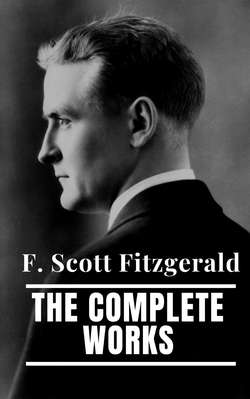Читать книгу The Complete Works of F. Scott Fitzgerald - F. Scott Fitzgerald - Страница 99
На сайте Литреса книга снята с продажи.
Monsignor.
ОглавлениеAmory kept thinking how Monsignor would have enjoyed his own funeral. It was magnificently Catholic and liturgical. Bishop O’Neill sang solemn high mass and the cardinal gave the final absolutions. Thornton Hancock, Mrs. Lawrence, the British and Italian ambassadors, the papal delegate, and a host of friends and priests were there—yet the inexorable shears had cut through all these threads that Monsignor had gathered into his hands. To Amory it was a haunting grief to see him lying in his coffin, with closed hands upon his purple vestments. His face had not changed, and, as he never knew he was dying, it showed no pain or fear. It was Amory’s dear old friend, his and the others’—for the church was full of people with daft, staring faces, the most exalted seeming the most stricken.
The cardinal, like an archangel in cope and mitre, sprinkled the holy water; the organ broke into sound; the choir began to sing the Requiem Eternam.
All these people grieved because they had to some extent depended upon Monsignor. Their grief was more than sentiment for the “crack in his voice or a certain break in his walk,” as Wells put it. These people had leaned on Monsignor’s faith, his way of finding cheer, of making religion a thing of lights and shadows, making all light and shadow merely aspects of God. People felt safe when he was near.
Of Amory’s attempted sacrifice had been born merely the full realization of his disillusion, but of Monsignor’s funeral was born the romantic elf who was to enter the labyrinth with him. He found something that he wanted, had always wanted and always would want—not to be admired, as he had feared; not to be loved, as he had made himself believe; but to be necessary to people, to be indispensable; he remembered the sense of security he had found in Burne.
Life opened up in one of its amazing bursts of radiance and Amory suddenly and permanently rejected an old epigram that had been playing listlessly in his mind: “Very few things matter and nothing matters very much.”
On the contrary, Amory felt an immense desire to give people a sense of security.
